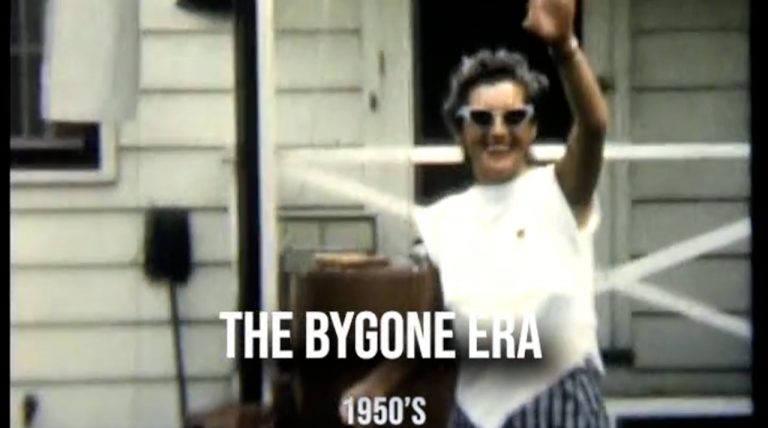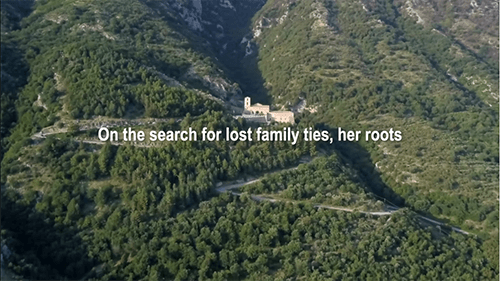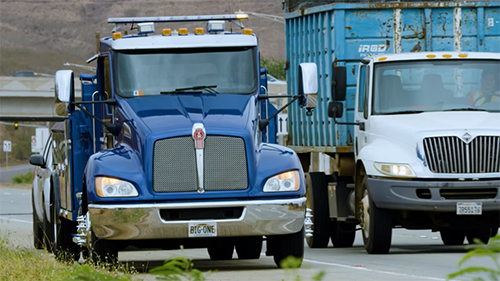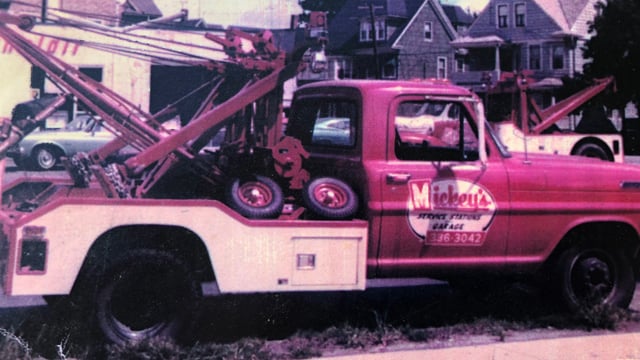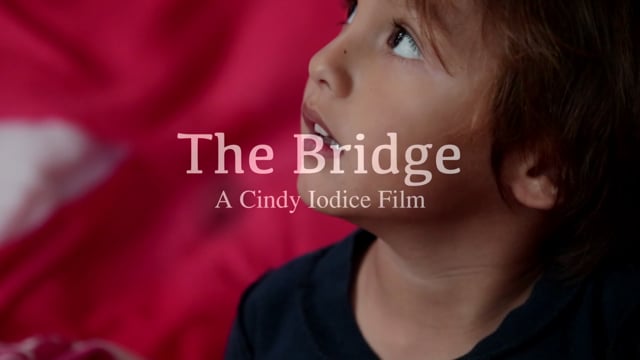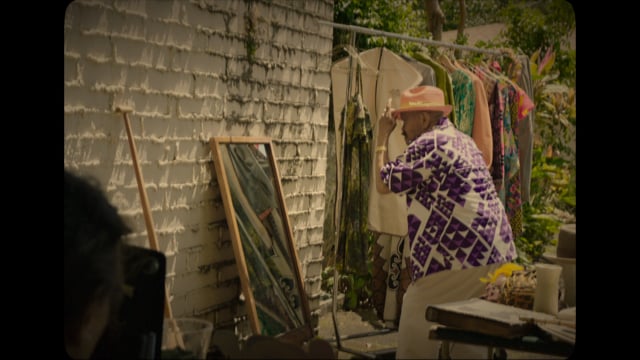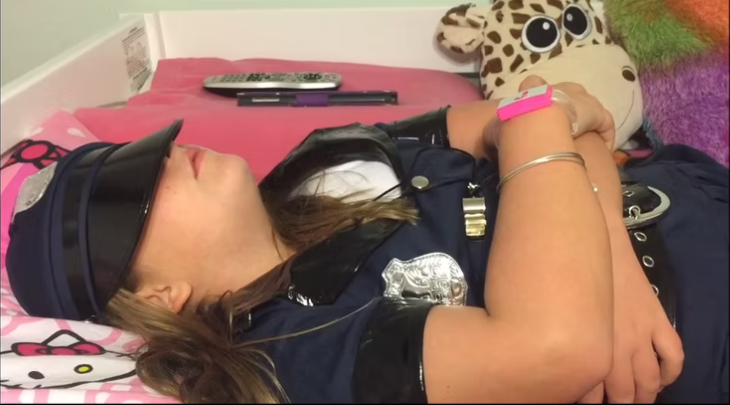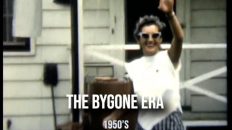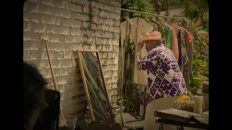Project Brief: Bucciano
Logline:
In 1913, Rosario and Gilorma Iodice fled their famine-stricken village of Bucciano, Italy with their young son Michele, then boarded a cargo steamship bound for New York City in search of a new country and a better life. Over 100 years later, great granddaughter Cindy Iodice finds her way back to the village of Bucciano only to discover there is still family living in the old country.
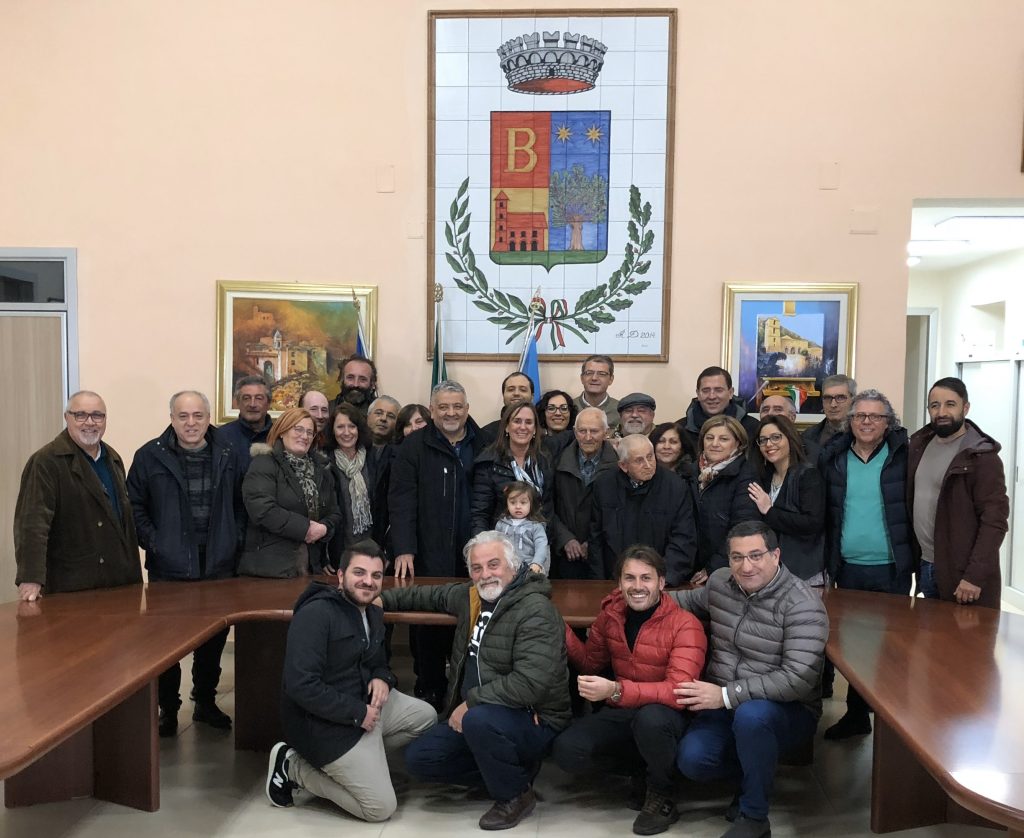
Synopsis:
Bucciano is a story about finding family in our old country 104 years after my great-grandparents and grandfather.
During one of the largest waves of Italian immigration on record between World War I and World War II, Rosario and Gilorma Iodice left for America in 1913 never to return home to their native land. One-hundred and four years later, great-granddaughter and filmmaker Cindy Iodice traveled to Bucciano Italy to take pictures of the place her grandfather was born, only to discover there was still family living in the old country.
Cindy embarked on a journey to find and meet her family, better understand her culture, and explore the region. Once immersed in the village, Cindy quickly realized that her Italian family didn’t look or act the way Hollywood portrays Italians in cinema. Through interviews and research, Cindy learned that most Italians in the region had been experiencing working-class struggles in post-war Italy for decades. The characters and stories featured in Italian neorealism films, stories about famine, poverty and economic struggle more accurately depicted her family’s reality. The Iodice family, who once held noble status in Southern Italy were now living on government subsidies and barely making ends meet. Bucciano is a film about family, culture, and community in a rural village in Southern Italy.
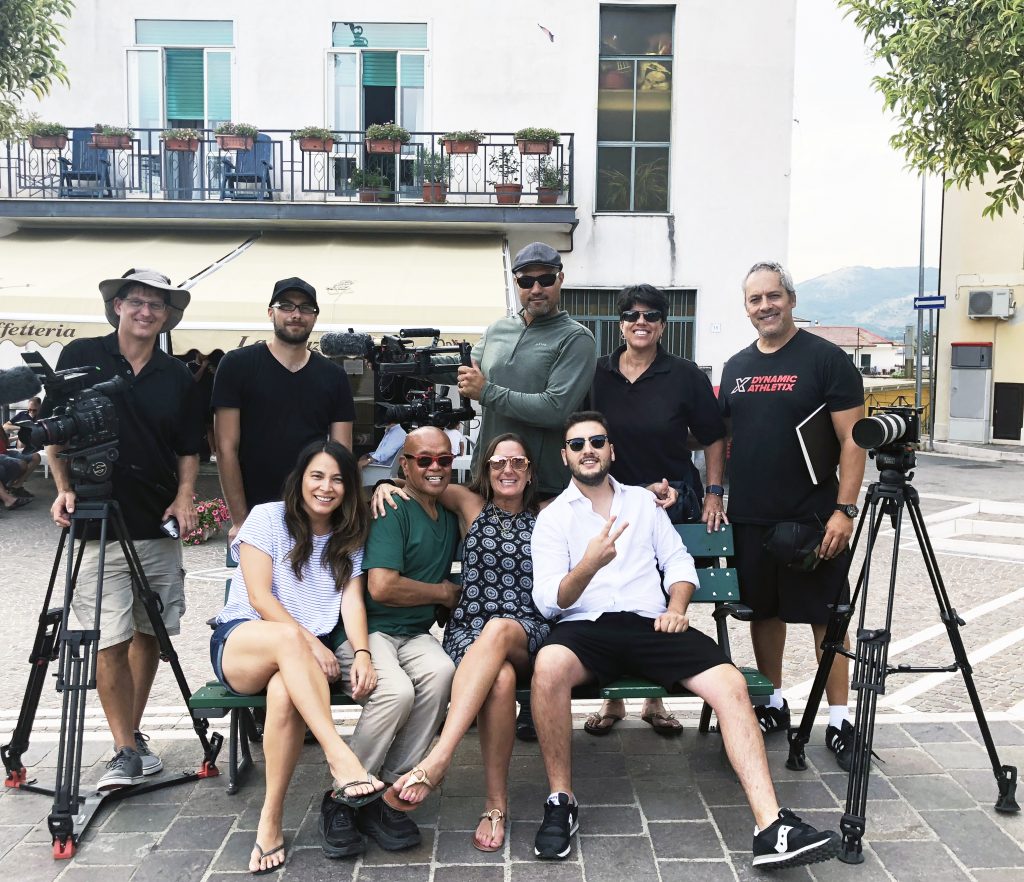
Director’s Statement
In 2017, an Ancestry DNA test revealed that my grandfather was born in a place called Bucciano. A few months later I was attending a film festival in Naples Italy with my award-winning short film The Bridge. I decided to drive to Bucciano to take pictures of the place my grandfather was born. The first person I met had the same last name as my great- grandmother, Ruggiero. Then, I met with two young interns at city hall including Rosa Ruggiero. I commented to Rosa that she also had the same last name as my great-grandmother and that we were probably related. Rosa spoke some English and informed me that there were a lot of Ruggiero’s, and that we probably weren’t related. I waited in the town hall meeting room and when Sabatino Falzarano, the village archivist. Sabatino was able to find the birth certificate of Grandpa Iodice, the birth certificates of his parents and their marriage license. Sabatino told me that my great-grandparents were married right there in city hall, right where I was standing. I cried. The three hours that I spent in City Hall were overwhelming and incredibly emotional. By the time I left Italy, I had 60 new Facebook friends (and counting) and permission to return with my film crew.
About Bucciano
Bucciano Italy, a commune in the Province of Benevento in the Campania region 40 km northeast of Naples located on the southern slope of Mount Taburno. Population: 2000 people. Life in Bucciano is simple. The economy is rooted in agriculture: olive oil, wheat, flour, wine, cherries, corn, and legumes. Generations of farmers tend to the lands once worked by their ancestors. New leadership in government began to make improvements to the infrastructure beginning in 2008 paving roads, introducing internet, cable television and solar to this rural mountain village. The village is surrounded by vast resources: fertile farmland, rolling lush green hills, and an unlimited supply of natural spring water located deep in Taburno mountain.
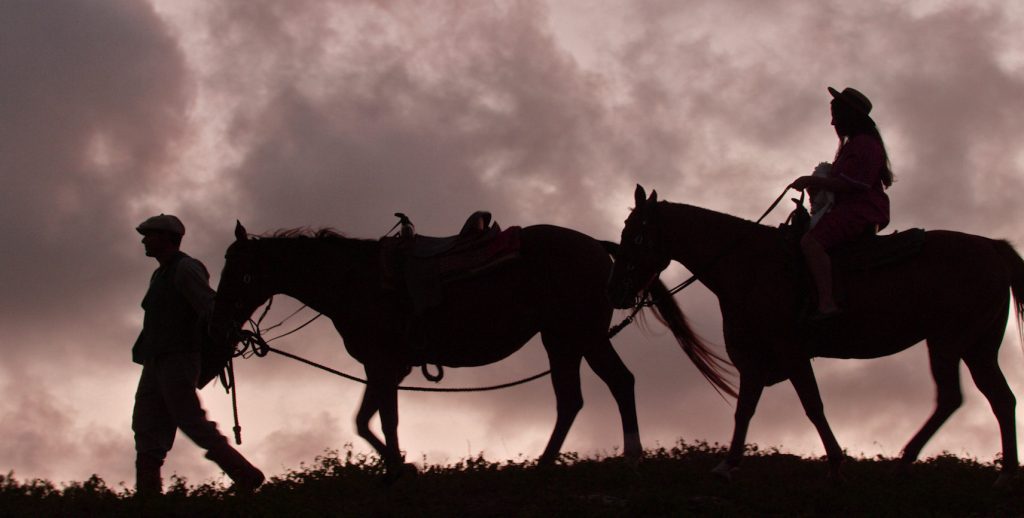
More About Rosario Iodice’s Family
Rosario’s parents Maria (Napolitano) (1848-1928) and Donato Iodice (1838-1925) were farmers in Bucciano. They grew vegetables and kept livestock in the house. Their specialty was growing tomatoes, olives for producing olive oil and grapes for wine. The basement served as the walk-in refrigerator; wine was funneled into barrels through a window. Their first-born daughter Antonia passed away at 21 years of age and their second son (the first Rosario) died when he was 13 months old. Their oldest son Nicola and youngest daughter Maddalena worked the farm and raised their families in the village. Rosario was the only member of the immediate family to emigrate to America. Rosario traveled to the US in 1905 and 1906 it was to visit an uncle in Boston and to investigate a growing community of Buccianesi’s living in Connecticut.
Rosario Iodice married Gilorma Ruggiero in Bucciano February 1911 when he was 26, she was 21. Their son Michele (my grandfather) was born that same year. In 1913 this small family of three left Bucciano. Rosario and Gilorma had 4 more children in America. Their youngest daughter Nicolina turned 93 in March of 2022. Nicolina was 16 years younger than her oldest brother Michele (Mickey) who passed away in 1986.
During WWII when Buccianesi’s were unable to tend to their farms because the Germans had invaded their village, Rosario sent food and money from America. Maria and Donato and other family members shipped olive oil to Rosario and his growing family abroad. Rosario and Gilorma never returned to Bucciano.
More about the journey to America in the beginning of the 19th Century:
Travel from Bucciano to Naples was 4 hours by horseback, much longer on foot. The journey from Naples, Italy to Ellis Island, New York on the cargo steamship took about one month. The conditions were deplorable. Some passengers would invariably pass away during this lengthy and difficult trip.
Approach
The narrative arc will be realized through oral storytelling, interviews with lifelong Bucciano residents, dignitaries, historians, archivists, and family. The film boasts a journey of discovery as “Italy’s long-lost daughter” Cindy Iodice investigates the birthplace of her grandfather. Through Cindy’s exploration, the audience will learn about Bucciano values, culture, traditions, and community.
In the late 1930’s, Cindy’s great grandfather, Rosario who immigrated to America in 1913, sent a U.S. work permit to nephew Antonio Ruggiero who was living in the old country, inviting him to America for a better life. Antonio declined this offer in favor of staying in Bucciano and caring for his brother, Felicia, who was afflicted by meningitis as a young boy. In 2018, we met and interviewed Antonio who was still caring for his brother despite their advanced age. Antonio is the family’s most prolific oral storyteller, who lays out the rich fabric of the Iodice family history. “Everyone was hungry,” Antonio recalls, “there was no food” “Uncle Rosario was sending food and money from his home in America to help our family survive during these dark years.” Antonio recalls. Rosario was faithful about staying in touch and providing monetary support even as the decades passed, sending letters and photos from America.

